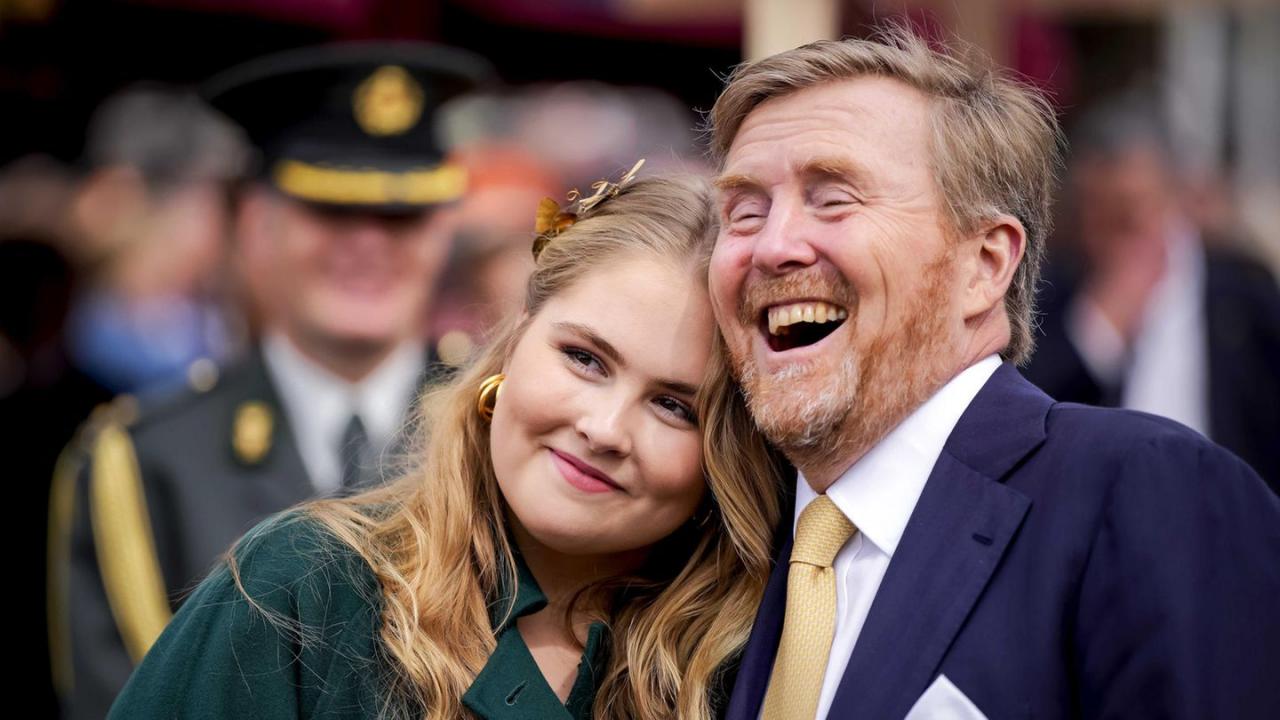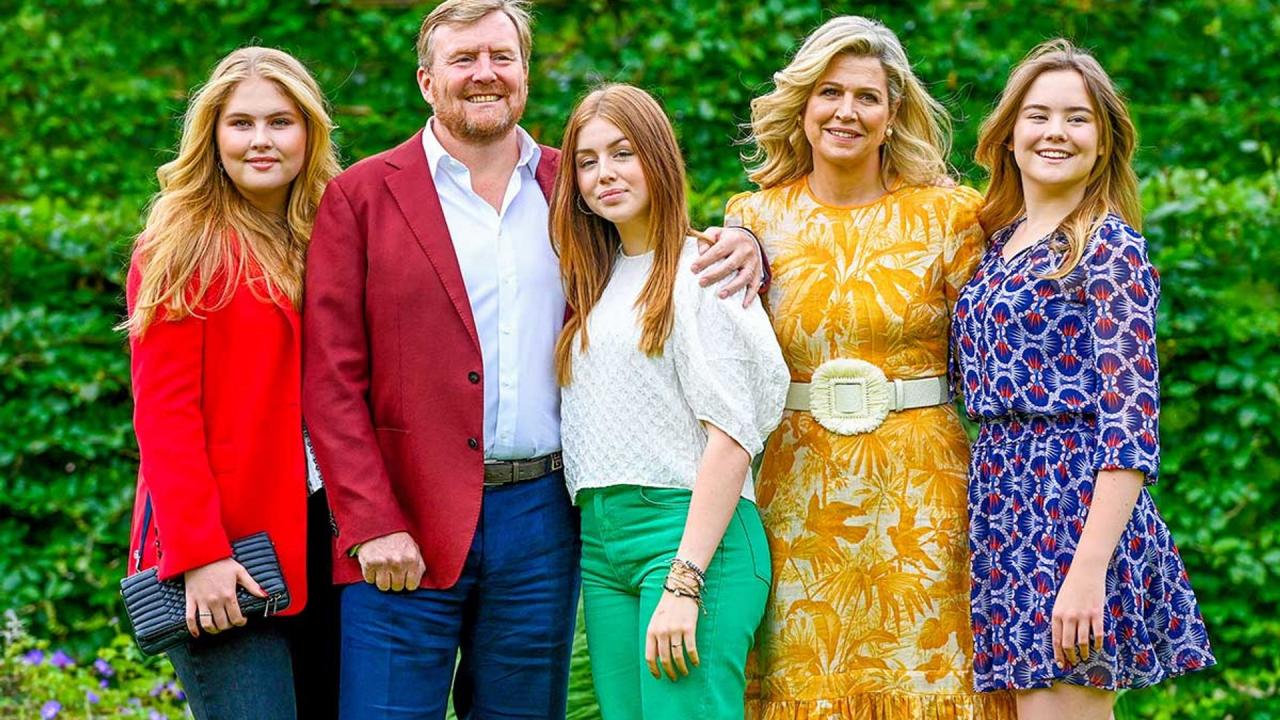
King of netherlands – The King of the Netherlands stands as a symbol of Dutch heritage and unity, embodying the nation’s rich history while navigating the challenges of a modernizing society.
The monarchy’s roots stretch back centuries, with the House of Orange-Nassau playing a pivotal role in shaping the country’s destiny. Today, the King’s constitutional responsibilities and ceremonial duties reflect the evolving nature of the monarchy in the 21st century.
Royal Lineage and Historical Context

The Dutch monarchy has a rich and storied history, dating back to the 16th century. The current royal family is descended from the House of Orange-Nassau, which has played a significant role in Dutch history. The monarchy has evolved over the centuries, adapting to changing societal norms and expectations.
The House of Orange-Nassau has ruled the Netherlands for over 400 years. The dynasty was founded by William the Silent, who led the Dutch revolt against Spanish rule in the 16th century. William’s son, Maurice of Orange, became the first Stadtholder of the Dutch Republic.
The Stadtholder was the chief executive of the republic and had significant political and military power.
In 1815, the Netherlands became a kingdom and the House of Orange-Nassau became the royal family. The first king of the Netherlands was William I. He was succeeded by his son, William II, and then by his grandson, William III.
William III died without an heir, and the throne passed to his daughter, Wilhelmina.
Wilhelmina reigned for over 50 years, from 1890 to 1948. She was a popular and respected monarch, and she played a key role in guiding the Netherlands through two world wars. Wilhelmina was succeeded by her daughter, Juliana. Juliana reigned for over 30 years, from 1948 to 1980. She was also a popular monarch, and she is credited with modernizing the monarchy.
Juliana was succeeded by her daughter, Beatrix. Beatrix reigned for over 30 years, from 1980 to 2013. She was a popular and respected monarch, and she is credited with maintaining the monarchy’s relevance in the 21st century. Beatrix abdicated in 2013, and she was succeeded by her son, Willem-Alexander.
Willem-Alexander is the current King of the Netherlands. He is the first male monarch of the Netherlands since 1890. Willem-Alexander is a popular monarch, and he is credited with modernizing the monarchy and making it more accessible to the public.
Constitutional Role and Responsibilities
The King of the Netherlands is a constitutional monarch. This means that his powers are limited by the constitution. The King’s powers include:
- Appointing the Prime Minister and other ministers.
- Opening and closing the parliament.
- Signing laws into effect.
- Representing the Netherlands on the international stage.
The King also has a number of ceremonial and symbolic functions. For example, he opens the parliament each year and he gives a speech on national holidays.
The King is not involved in the day-to-day running of the government. The Prime Minister and the other ministers are responsible for running the country. The King’s role is to ensure that the government is functioning properly and that the constitution is being upheld.
Public Perception and Cultural Impact: King Of Netherlands
The Dutch monarchy is very popular in the Netherlands. The King is seen as a symbol of national unity and identity. The monarchy also plays a significant role in promoting Dutch culture and traditions.
The monarchy is particularly popular among older people. However, it is also becoming more popular among younger people. This is due in part to the efforts of the current King, Willem-Alexander, who has made the monarchy more accessible to the public.
The monarchy has a significant cultural impact on the Netherlands. The King and Queen are often featured in the media, and they are often involved in cultural events. The monarchy also plays a role in promoting Dutch art and literature.
International Relations and Diplomacy

The King of the Netherlands plays an important role in representing the Netherlands on the international stage. He meets with other heads of state and government, and he attends international conferences and summits.
The King also promotes Dutch interests abroad. He often travels to other countries to promote Dutch trade and investment. He also works to strengthen relations between the Netherlands and other countries.
The King’s role in international relations is important for the Netherlands. It helps to ensure that the Netherlands is a respected and influential member of the international community.
Modernization and Adaptation
The Dutch monarchy has adapted to changing societal norms and expectations over the centuries. In the past, the monarchy was seen as a symbol of authority and power. However, today, the monarchy is seen as a symbol of national unity and identity.
The monarchy has also become more accessible to the public. In the past, the royal family was very private. However, today, the royal family is more open and transparent. This has helped to increase the popularity of the monarchy.
The monarchy is facing a number of challenges in the 21st century. One challenge is the increasing secularization of society. This is leading to a decline in the number of people who believe in the divine right of kings. Another challenge is the rise of populism.
This is leading to a decline in support for traditional institutions, such as the monarchy.
Despite these challenges, the Dutch monarchy remains popular. The King and Queen are seen as symbols of national unity and identity. The monarchy also plays a significant role in promoting Dutch culture and traditions.
Concluding Remarks
As the Netherlands continues to evolve, the monarchy faces both opportunities and challenges. By adapting to changing societal norms and embracing its role as a symbol of national unity, the King of the Netherlands remains a central figure in Dutch society, ensuring the monarchy’s continued relevance and public support.
General Inquiries
What is the King of the Netherlands’ constitutional role?
The King is the head of state and plays a role in forming cabinets, signing laws, and representing the Netherlands internationally.
How is the King of the Netherlands chosen?
The King is chosen by succession, with the eldest child of the reigning monarch inheriting the throne.
What is the significance of the House of Orange-Nassau?
The House of Orange-Nassau has ruled the Netherlands for centuries and is closely associated with the country’s history and national identity.





